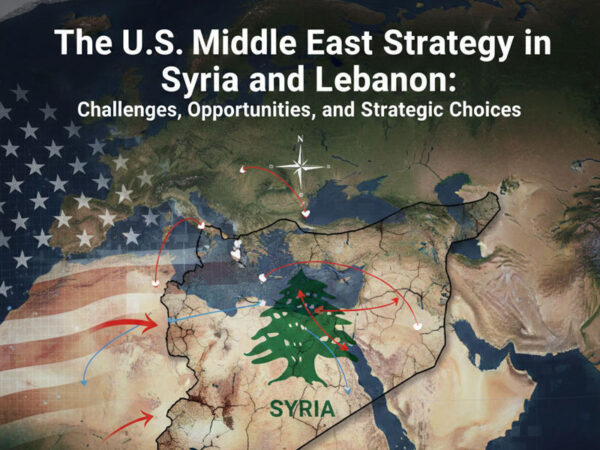
The U.S. Middle East Strategy in Syria and Lebanon: Challenges, Opportunities, and Strategic Choices
The Trump administration’s Middle East policy has been structured around three mutually reinforcing tracks. First, it has sought
The views expressed by National Council Analyses & Assessments contributors are the personal views of the individual authors, and are not necessarily endorsed by the National Council on U.S.-Arab Relations, its staff, Board of Directors, or Board of Advisors. Founded 1983 and based in Washington, D.C., the National Council on U.S.-Arab Relations is a non-profit, non-governmental, educational organization dedicated to promoting understanding of the Arab region, the Middle East, and the Islamic world.

The Trump administration’s Middle East policy has been structured around three mutually reinforcing tracks. First, it has sought
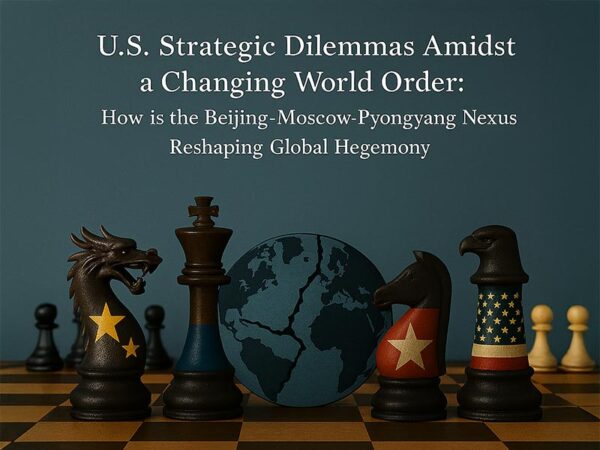
Since the end of the Cold War, American primacy has rested on two strategic spheres: the Asia-Pacific and
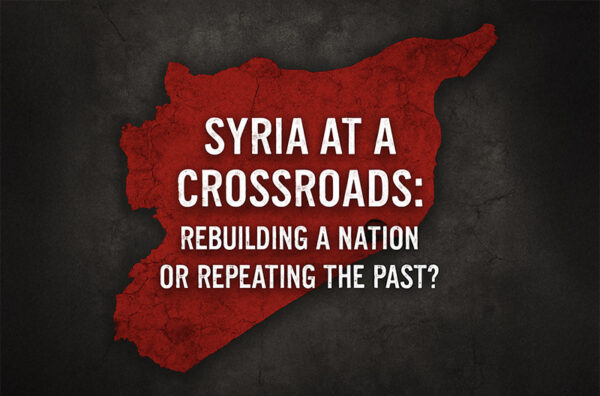
A man holds Syrian revolution flags in Aleppo, Syria as President Bashar al-Assad’s 24-year authoritarian rule has ended
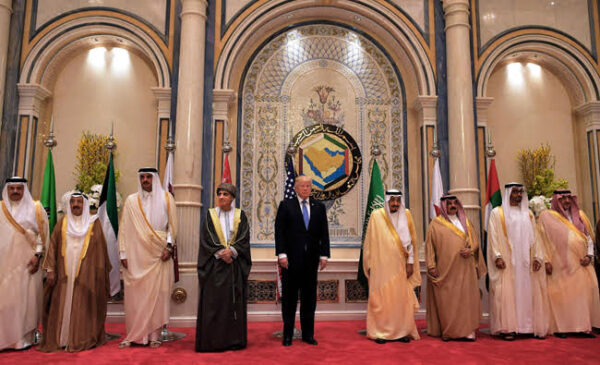
[U.S. President Donald Trump and GCC leaders in Riyadh in May 2017 (AFP)] As President Donald Trump prepares to visit the Gulf region…
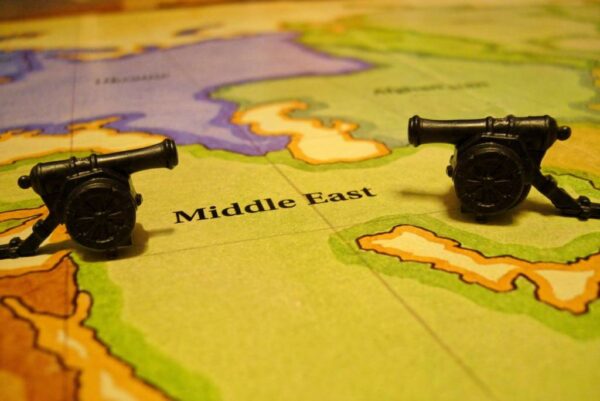
Prior to the 1979 Islamic Revolution, Israel and Iran maintained a robust strategic partnership, underpinned by shared interests

Introduction The Syrian conflict, ignited in 2011 amidst the fervor of the Arab Spring, has been a theater

Introduction: esports diplomacy In recent years, the world of competitive video gaming, known as esports, has transcended the

There is little doubt that Saudi Arabia’s Vision 2030 national development plan is a landmark initiative that will
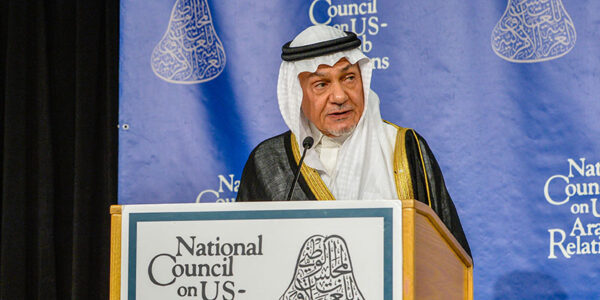
Keynote speech by HRH Prince Turki Al Faisal Al Saud delivered at the National Council on U.S.-Arab Relations’
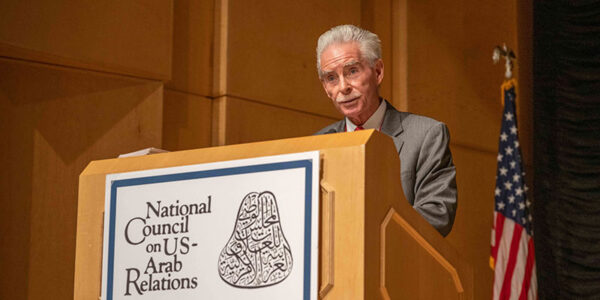
Remarks on Oman by Ambassador (Ret.) Dr. Richard Schmierer delivered at the National Council on U.S.-Arab Relations’ 31st
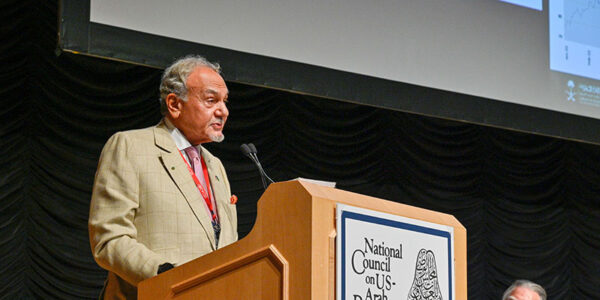
Keynote speech by HRH Prince Turki Al Faisal Al Saud delivered at the National Council on U.S.-Arab Relations’
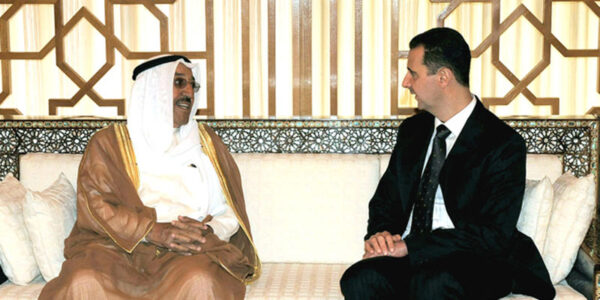
Introduction By Dr. John Duke Anthony In pursuit of its educational mission, the National Council works to serve